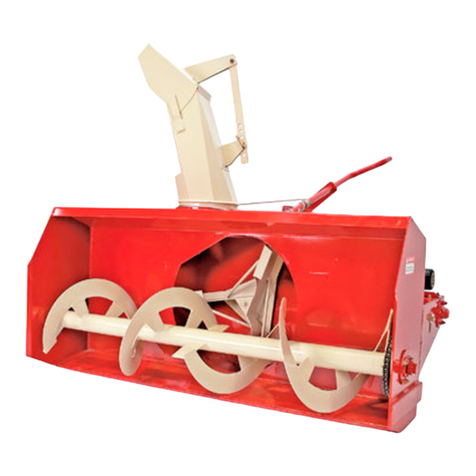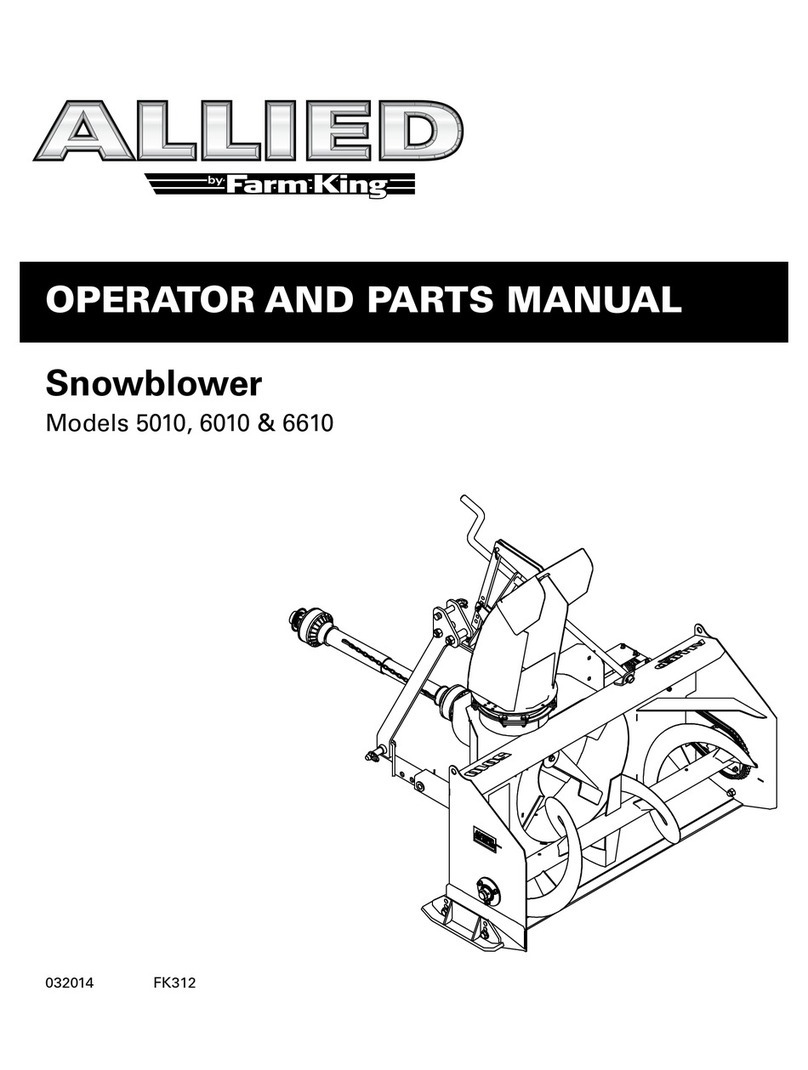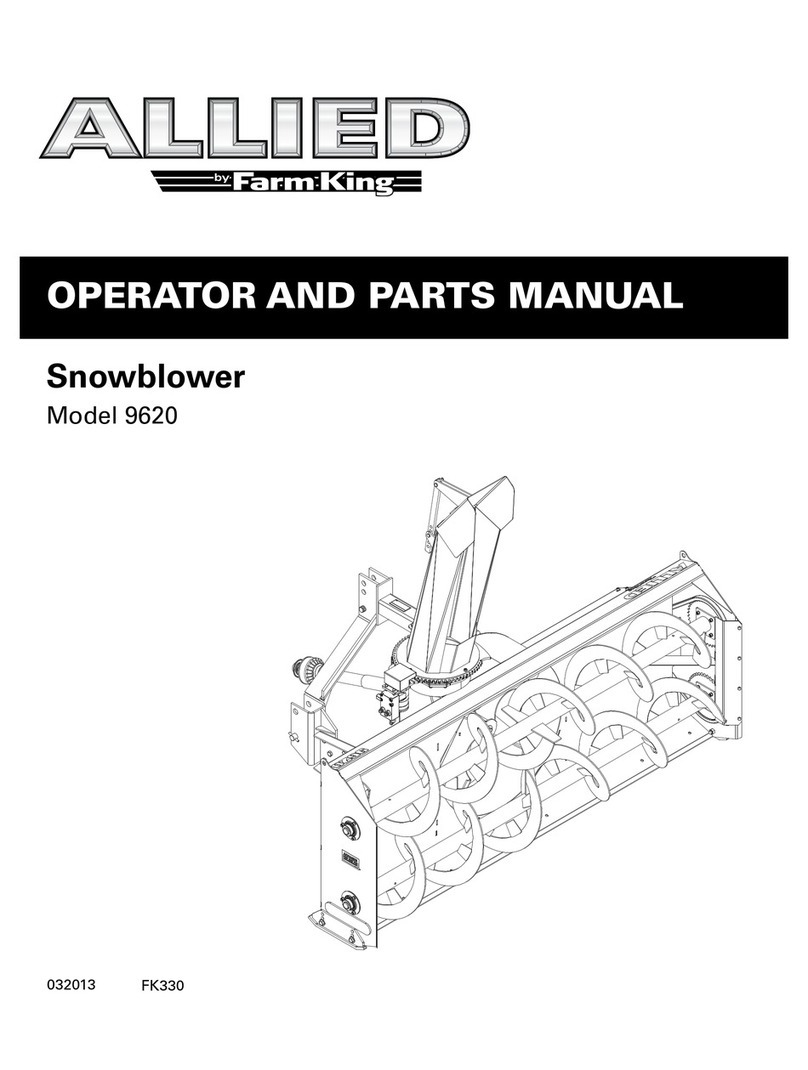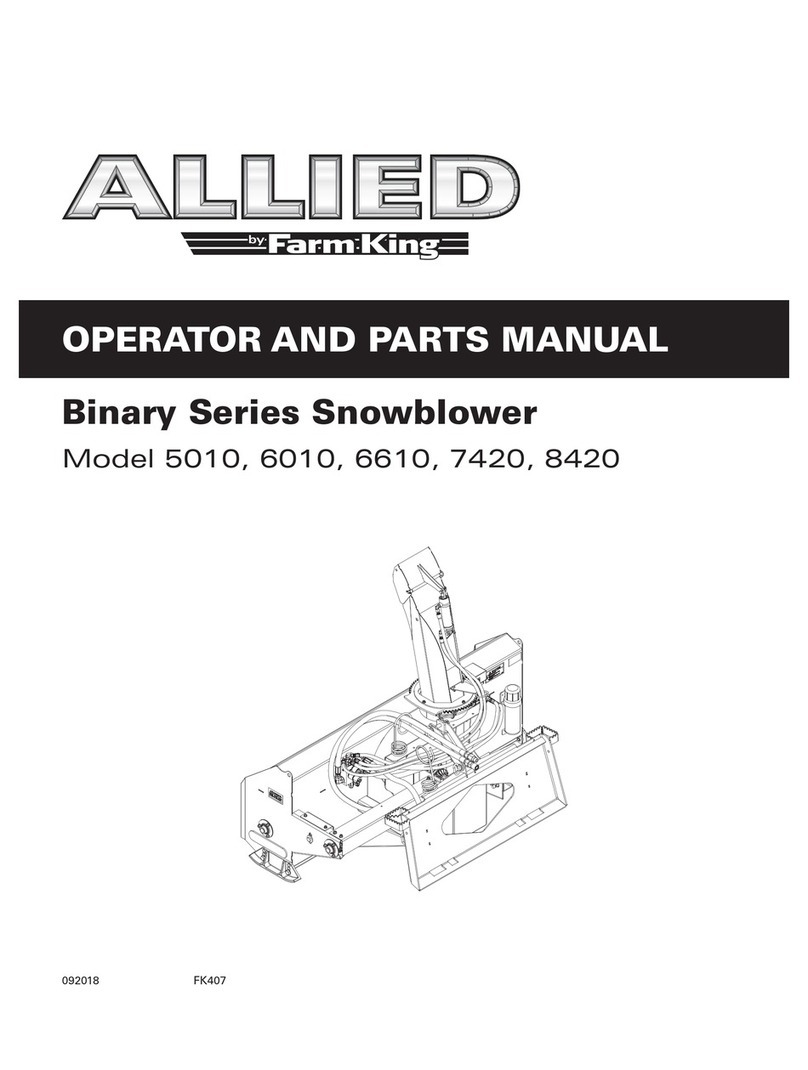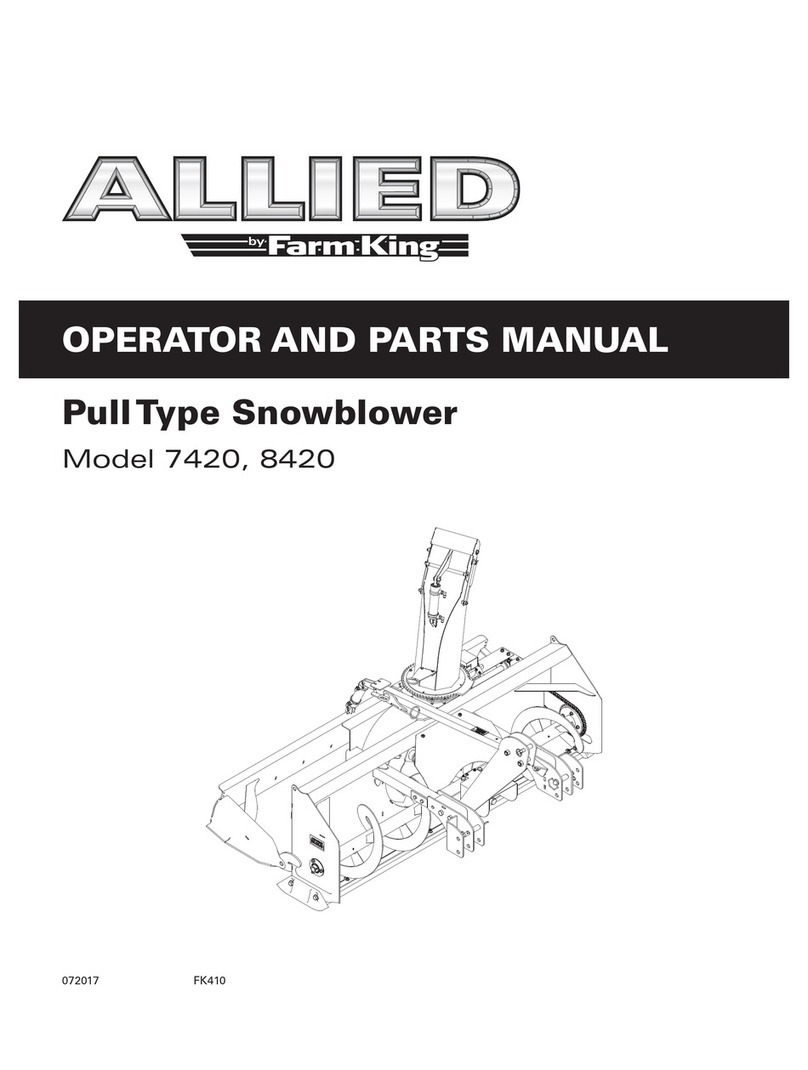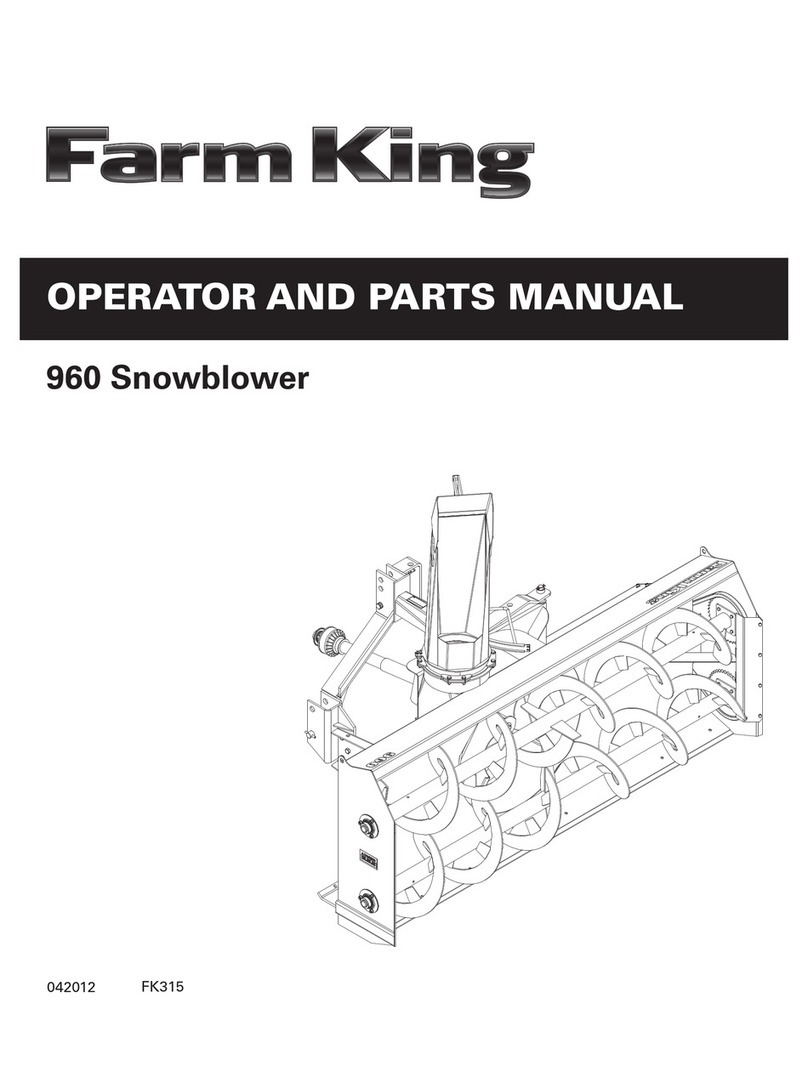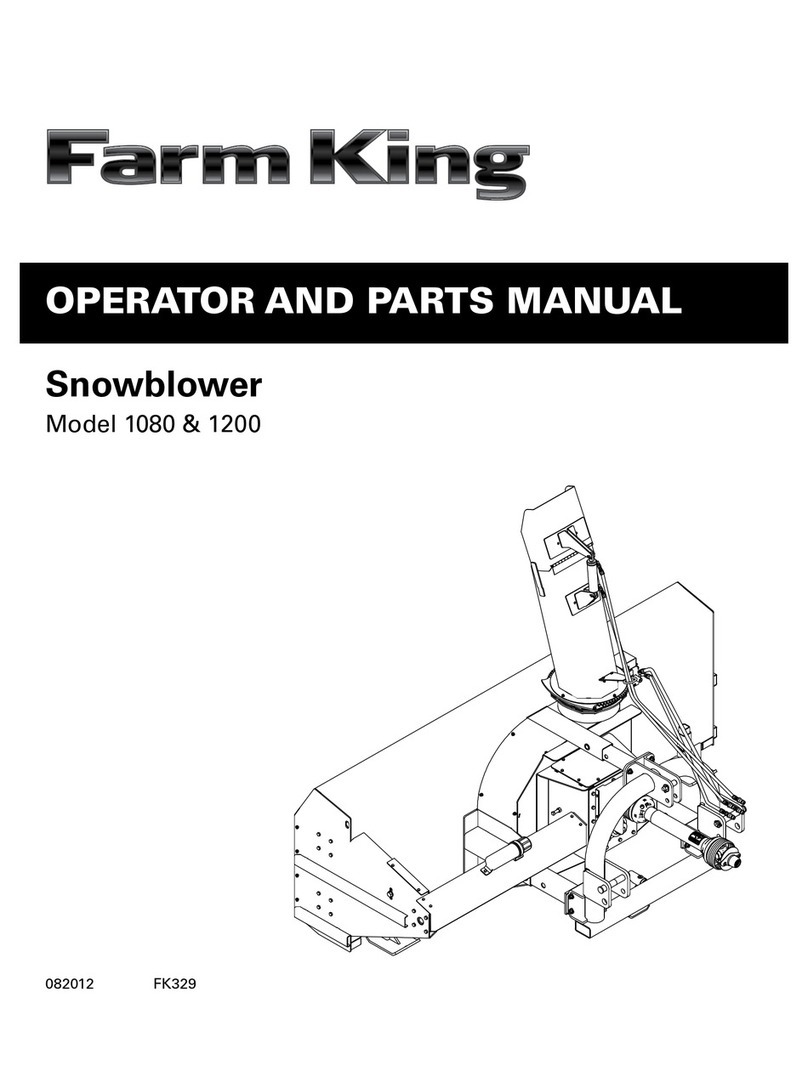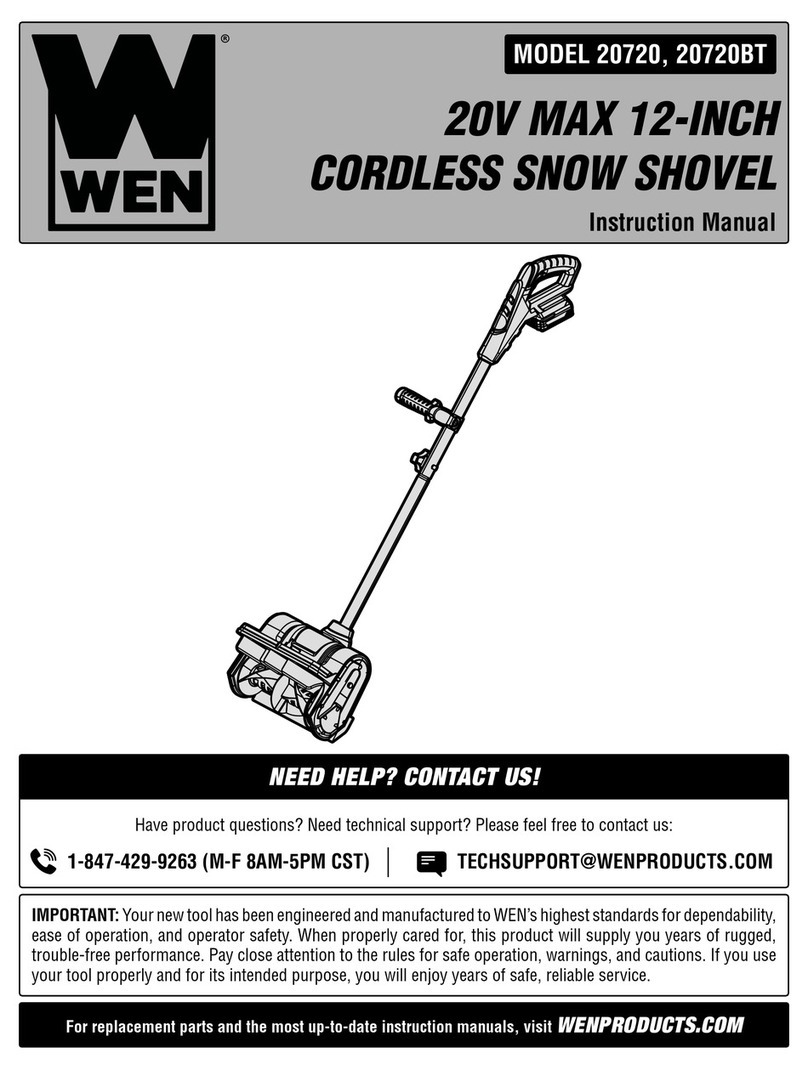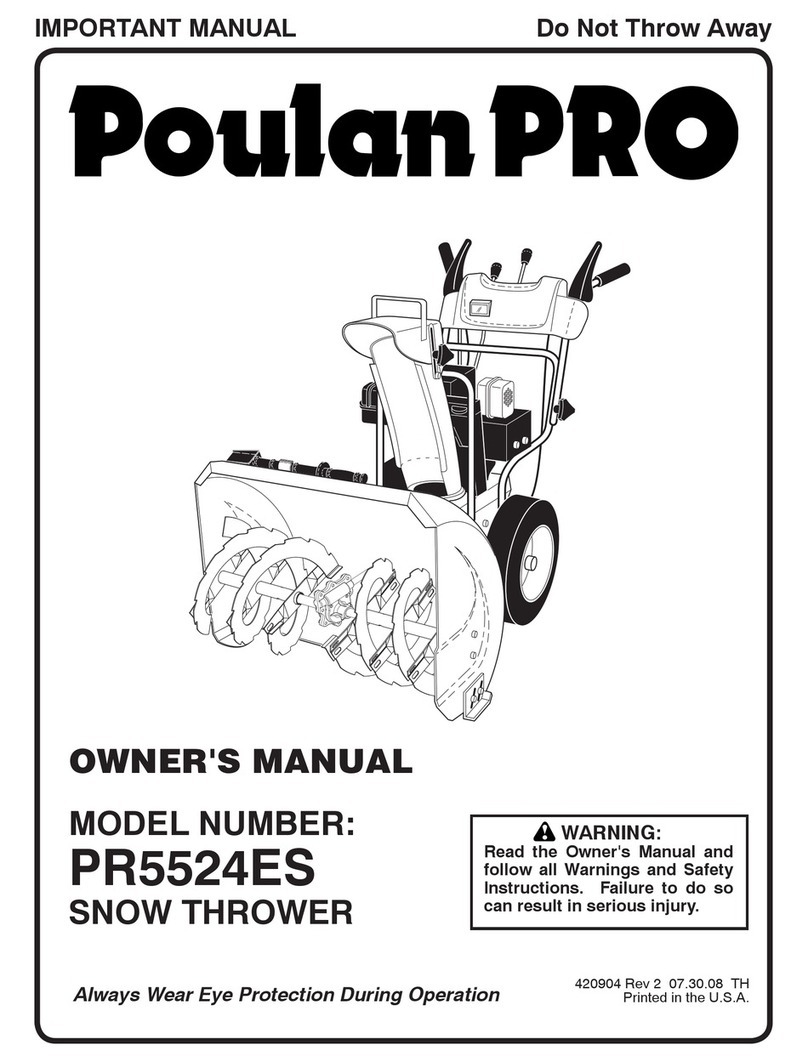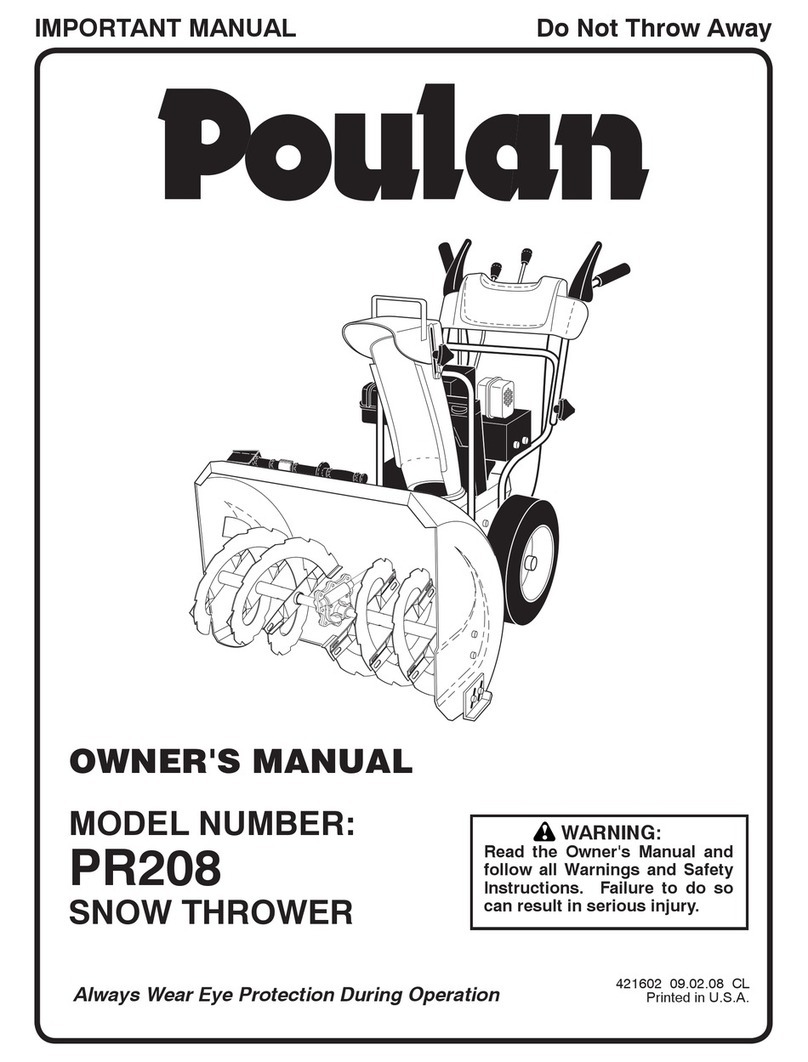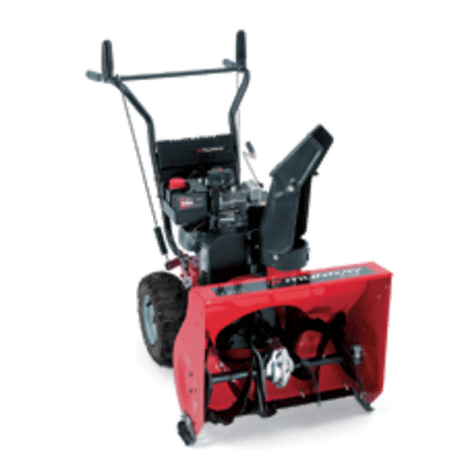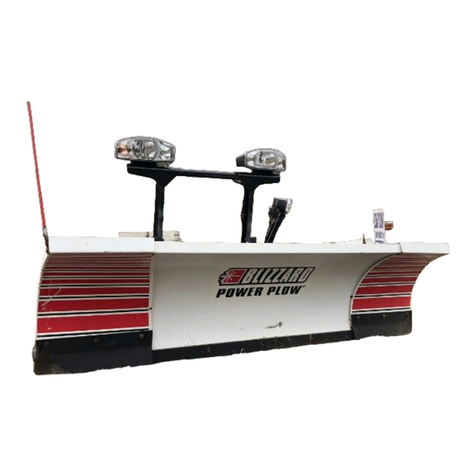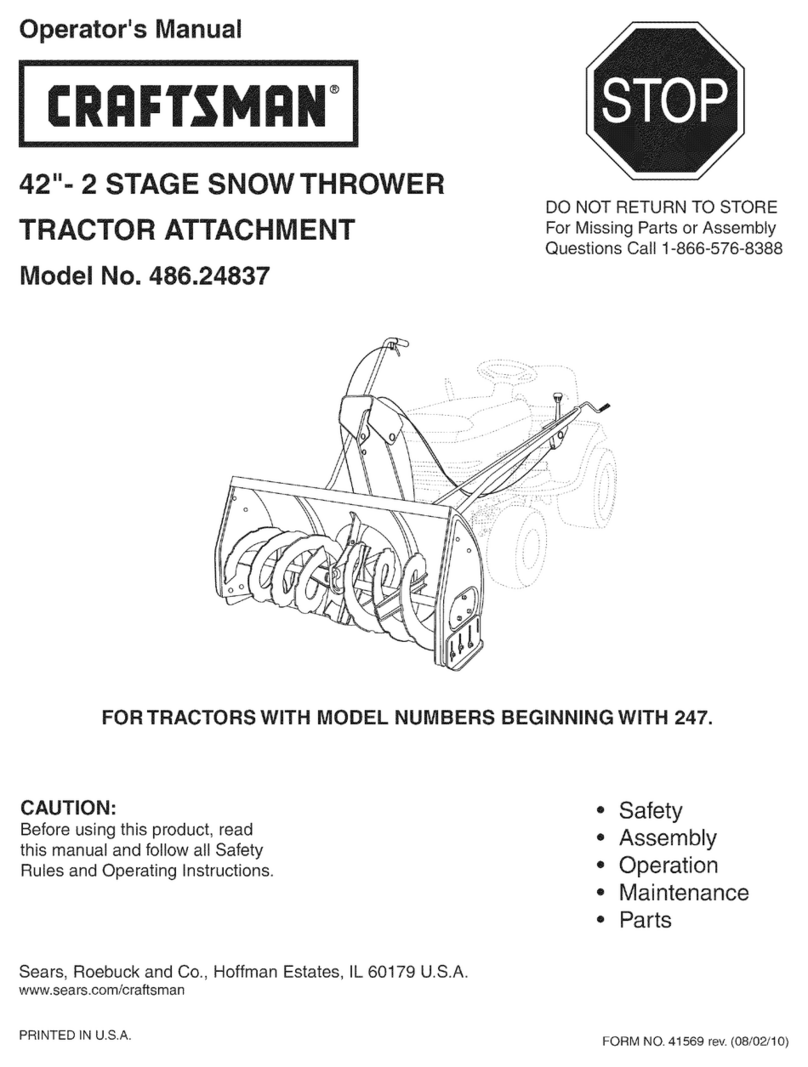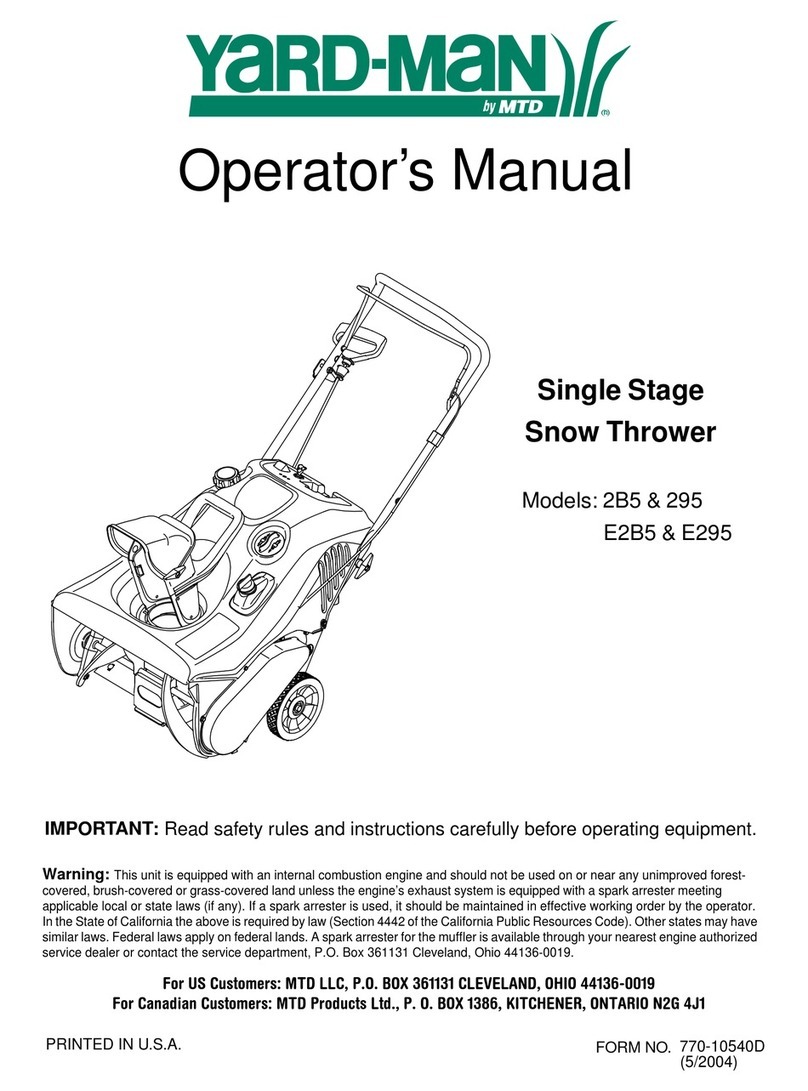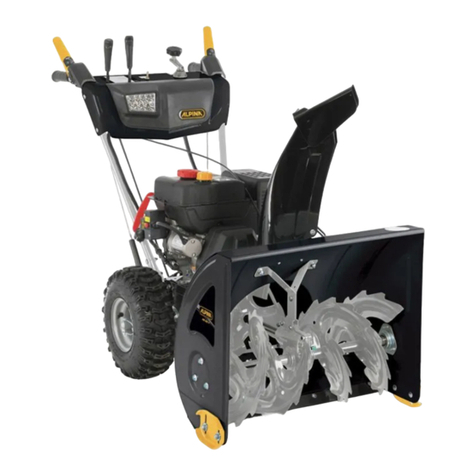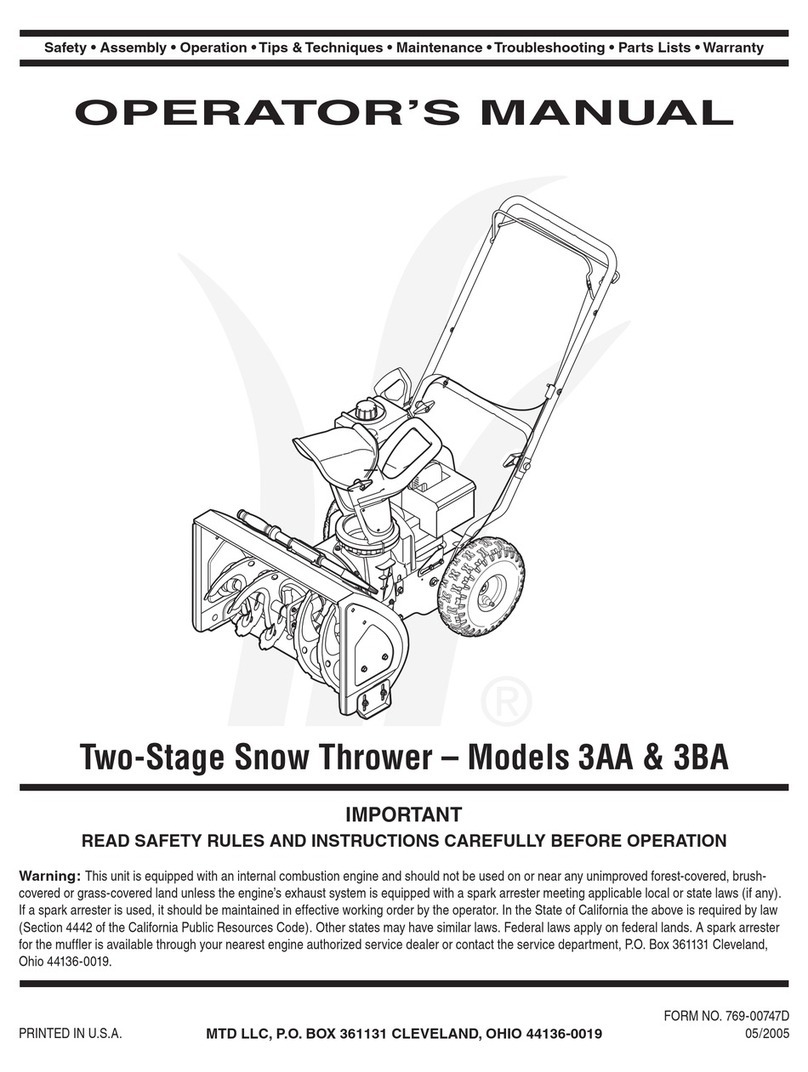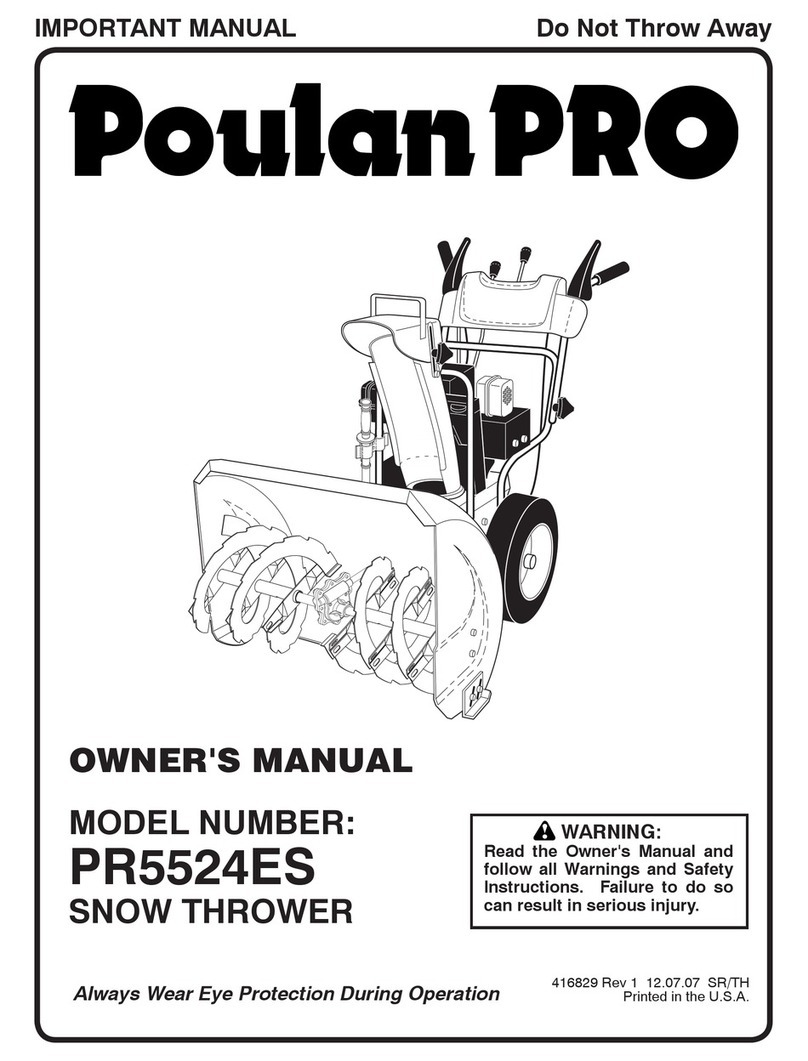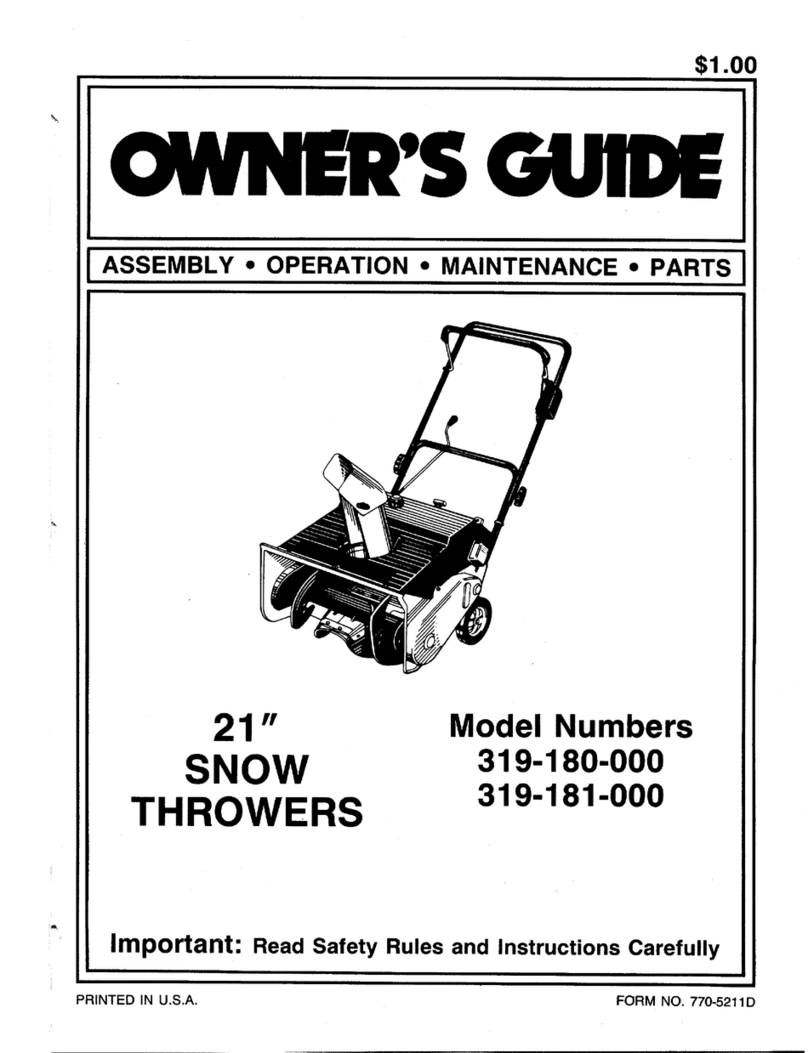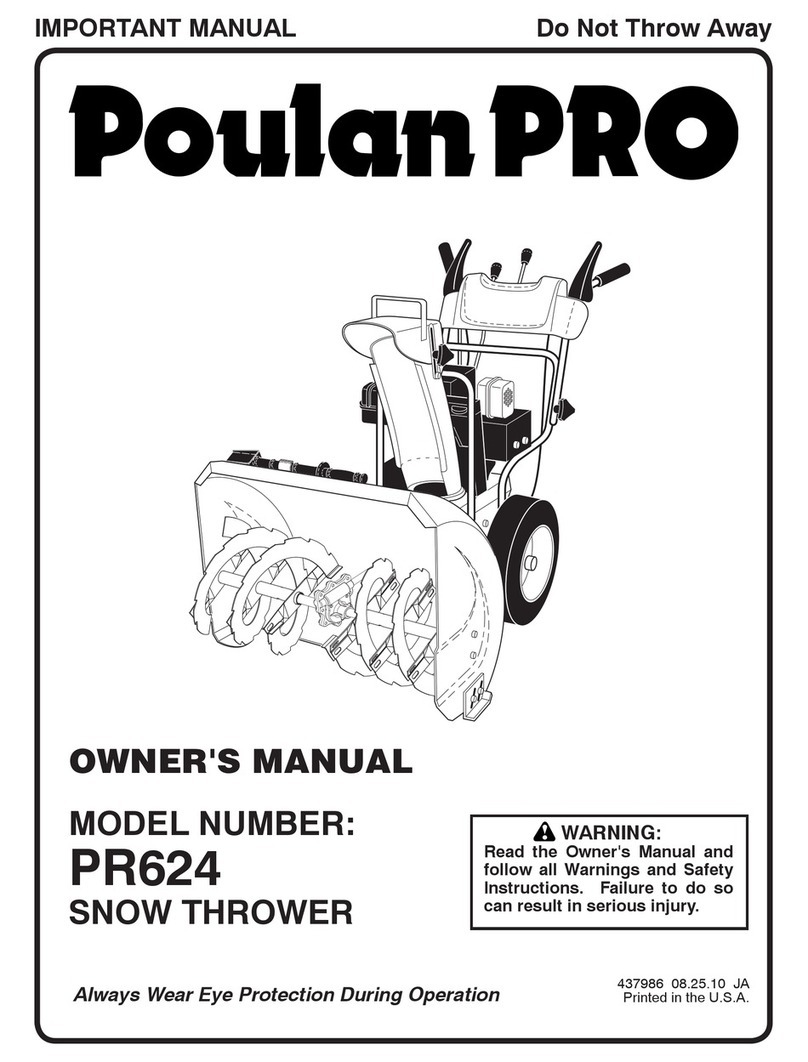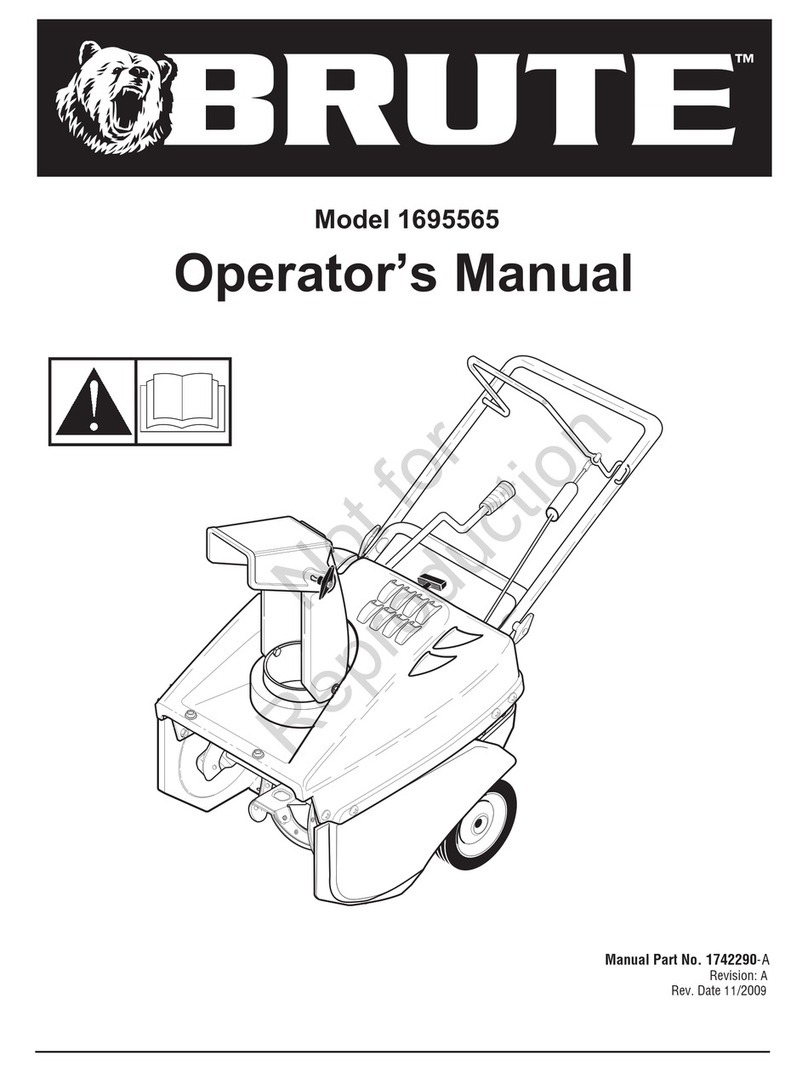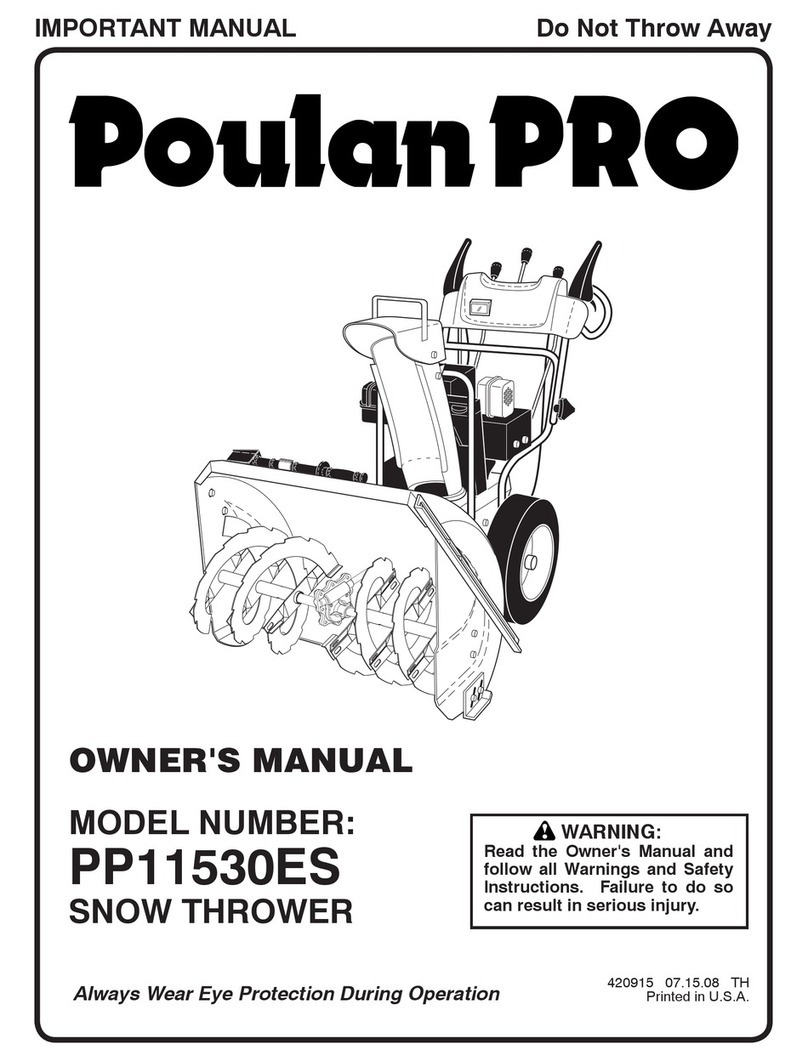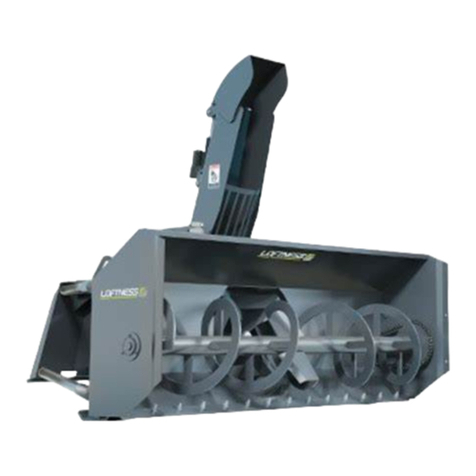
Introduction - 7420, 8420, 8420G
5
Owner’s Information
Thank you for your decision to purchase an Allied
by Farm King Snowblower. To ensure maximum
performance of your equipment, it is mandatory
that you thoroughly study the Operator And
Parts Manual and follow the recommendations.
Proper operation and maintenance are essential
to maximize equipment life and prevent personal
injury.
Operate and maintain this equipment in a safe
manner and in accordance with all applicable local,
state, and federal codes, regulations and / or laws.
Follow all on-product labeling and instructions.
Make sure that all personnel have read this
Operator And Parts Manual and thoroughly
understand safe and correct operating, installation
and maintenance procedures.
Farm King is continually working to improve its
products. Farm King reserves the right to make
any improvements or changes as deemed practical
and possible without incurring any responsibility
or obligation to make any changes or additions to
equipment sold previously.
Although great care has been taken to ensure the
accuracy of this publication, Farm King makes
no warranty or guarantee of any kind, written or
expressed, implied or otherwise with regard to the
information contained within this manual. Farm
King assumes no responsibility for any errors
that may appear in this manual and shall not be
liable under any circumstances for incidental,
consequential or punitive damages in connection
with, or arising from the use of this manual.
Keep this manual available for frequent reference.
All new operators or owners must review the
manual before using the equipment and annually
thereafter. Contact your Farm King Dealer if you
need assistance, information, or additional copies
of the manual.
Visit our website at www.farm-king.com for a
complete list of dealers in your area.
The directions left, right, front and rear, as
mentioned throughout this manual, are as viewed
by the operator sitting in the tractor seat while
towing the implement.
Serial Number Location
Please enter the model and serial number in the
space provided for easy reference.
Figure 1
Model Number:
Serial Number:
The serial number plate (Item 1) [Figure 1] is
located on the top corner of the main frame.
Always use your serial number when requesting
information or when ordering parts.
Manual Storage
Figure 2
The operator and parts manual and other
documents can be stored in the canister (Item 1)
[Figure 2].
1
1
